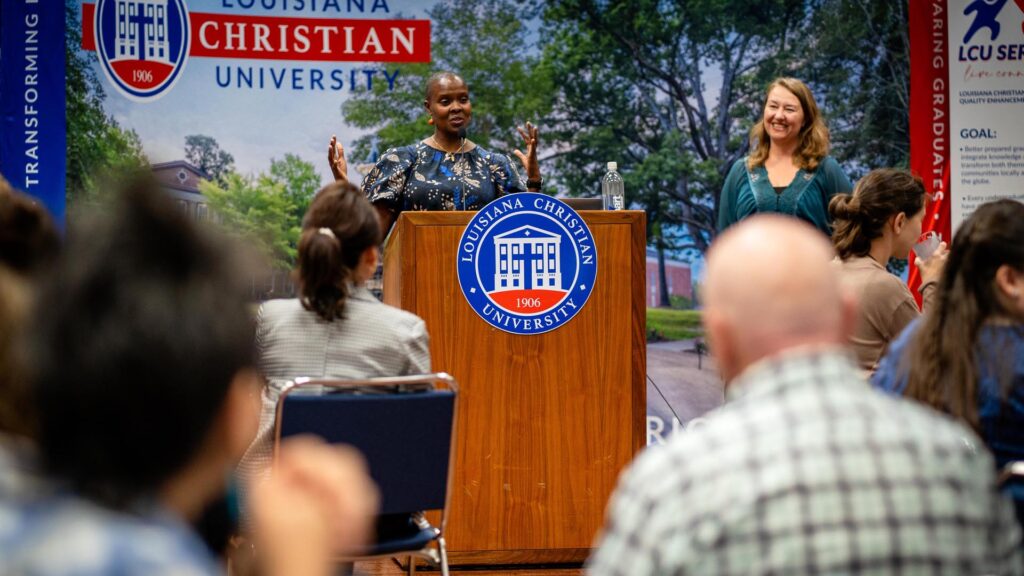Faculty focus on service learning for student engagement, community partnership

Louisiana Christian University welcomed two service learning scholars from Tulane University to its March faculty meeting to train professors in creative ways to incorporate this initiative into the classroom.
Dr. Jelagat Cheruiyot, a senior professor, teaches two to three of her courses with service learning each semester, teaching first-years to seniors, as well as other community-engaged projects involving student mentees.
Her service learning students work with several community partners locally and regionally on different projects from community gardens, restoration, recycling (materials and nutrient), insect sampling and preservation as well as attending and participating appropriately in different cultural events. Additionally, Dr. Cheruiyot facilitated Tulane Center for Public Service’s semesterly faculty seminar on service learning from fall 2021 to fall 2023, guiding dozens of faculty through service learning course conceptualization and design.
Bridget Smith, assistant director for Academic Community Engagement, has been with Tulane’s Center for Public Service, working at the nexus of community and higher ed for the past 15 years. She leads Tulane’s service-learning program, the core of its public service graduation requirement through which over 120 classes and nearly 2000 students each semester are learning and serving.
“LCU Serves, Live Connected” is LCU’s current Quality Enhancement Plan, and service-learning is one of the major components. In addition, the mission of the university encapsulates the definition of service learning: “a Christ-centered community committed to academic excellence where students are equipped for lives of learning, leading and serving.”
Vanessa Graves, LCU’s Quality Enhancement Plan director, said the goal of the plan is that when students graduate, they will have at least two service learning experiences.
Service-learning is an experiential learning practice that moves students out of the classroom and into the community to put their education into action in a way that serves others.
Smith said service learning began growing in popularity in university settings in the 1990s.
“Service learning really enhances a student’s academic learning, enhances understanding of civic responsibility and enhances job readiness and career development,” she said. “After being exposed to service learning, students become much more engaged in their own communities.”
Other outcomes include better problem-solving, critical thinking, and collaboration and communication skills. It also enhances their emotional intelligence and empathy.
By incorporating service learning into your coursework, you bring different perspectives into the classroom, Cheruiyot said.
“You get a different way of engaging with students, working side-by-side with them,” Cheruiyot said. “You can teach them in the moment.”
Another benefit for the university is it can generate new community and research partnerships, she said.
The QEP is in its third year. Graves said each degree program will incorporate service learning by year five.
=================================================================
Media Release | March 8, 2024 | Pineville, Louisiana
Contact: Dr. Elizabeth B. Clarke, Director of University Communications | Elizabeth.clarke@lcuniversity.edu
